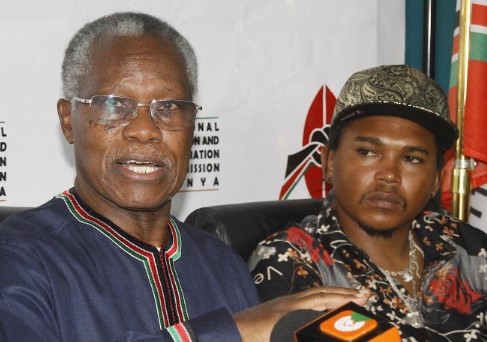×
The Standard e-Paper
Stay Informed, Even Offline

Fury greeted a move by National Cohesion and Integration Commission (NCIC) to ban usage of popular political jargon in the name of taming rise of hate speech ahead of election.
Top on the list is reference to a popular X-Ray song, "Sipangwingwi", now adopted by Deputy President William Ruto's political side in their campaign mobilization. In the list issued by NCIC Chair Rev. Samuel Kobia, "hatupangwingwi" is a hate speech term whose continued use will attract consequences from the Commission.